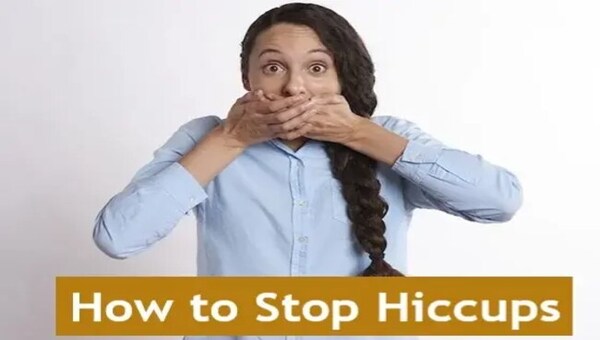How to stop Hiccups

Let’s admit it, we’ve all experienced those moments when we can’t stop hiccups, whether it’s in front of guests at home or colleagues at work. While the annoying sensation eventually subsides, these instances can be embarrassing and disrupt your daily life or work performance.
Read more: How to Support Your Mental Health During Premenstrual Syndrome (PMS)
What Causes Hiccups Exactly?
Hiccups occur when the muscles in the throat involuntarily contract, resulting in the sudden contraction of the diaphragm muscles that are beyond our control. This causes the vocal cords to close, producing a distinct intermittent sound. Hiccups can be caused by various factors, such as stress, eating too quickly or too much, and certain lung disorders like pneumonia that irritate the diaphragm. In rarer cases, severe triggers like strokes, brain tumors, or hypersensitivity to medications can contribute to persistent hiccups.
In medical terms, hiccups refer to the sudden contraction of the diaphragm and the intercostal muscles between the ribs. This spasm collides with the closed larynx, resulting in a hiccup sound and a slight jerk.
Read more: How to Improve Your Lung Health with Breathing Exercises
Some additional triggers for hiccups include:
- Consuming carbonated beverages
- Excessive alcohol consumption
- Smoking
- Inhaling more air than exhaling, leading to a drop in carbon dioxide levels, disrupting breathing patterns, and causing hiccups
- Eating large quantities of food too quickly
- Consuming spicy foods
- Sudden changes in body temperature, such as consuming something hot or cold
- Extreme emotions like fear, stress, anxiety, or excitement
For individuals experiencing chronic hiccups, underlying health conditions such as respiratory problems (e.g., asthma or pneumonia), gastrointestinal disorders (e.g., IBS), or long-term use of certain medications may be the cause. While hiccups typically last for a few minutes and resolve on their own, if you’re seeking quick remedies to alleviate sudden bouts of hiccups, keep reading.
Read more: The Benefits of High-Intensity Interval Training for Weight Loss
5 Natural and Effective Solutions for Hiccups
Back Patting
When uncontrollable hiccups strike, gently pat your back along your spine, starting from the back of your neck. This action helps release tension in the diaphragm muscles, putting an end to hiccups.
Warm Water Sip
Slowly drink a glass of warm water. This stimulates the vagus nerve, which runs from the brain to the stomach, effectively reducing hiccups.
Sugar on the Tongue
Take half a teaspoon of sugar and place it at the far end of your tongue. Hold it for two minutes, then swallow. Applying pressure with your tongue helps relieve tightness in the diaphragm muscles.
Lemon Slice Bite
Biting into a slice of lemon, with its pleasant aroma and tangy flavor, naturally relaxes the muscles in the nasopharynx. This, in turn, eases tension in the diaphragm muscles and also stop hiccups.
Breath Holding
Hold your breath for a few seconds to retain some carbon dioxide in your body. This action helps eliminate spasms in the diaphragm, stop hiccups.
Read more: The Benefits of Outdoor Meditation for Stress Relief
Using Pressure Points as Natural Remedies for Hiccups:
Applying pressure to specific areas of your body that are sensitive to pressure points may help relax the diaphragm or stimulate the vagus or phrenic nerves, providing relief from hiccups.
Tongue Pulling
Gently pull or move the tip of your tongue to trigger the nerves and muscles in your throat.
Diaphragm Pressure
Apply pressure to the area just below the end of the sternum (the breastbone) with your hand to alleviate hiccups.
Hand Pressure
Use your thumb to apply pressure to the palm of your other hand.




